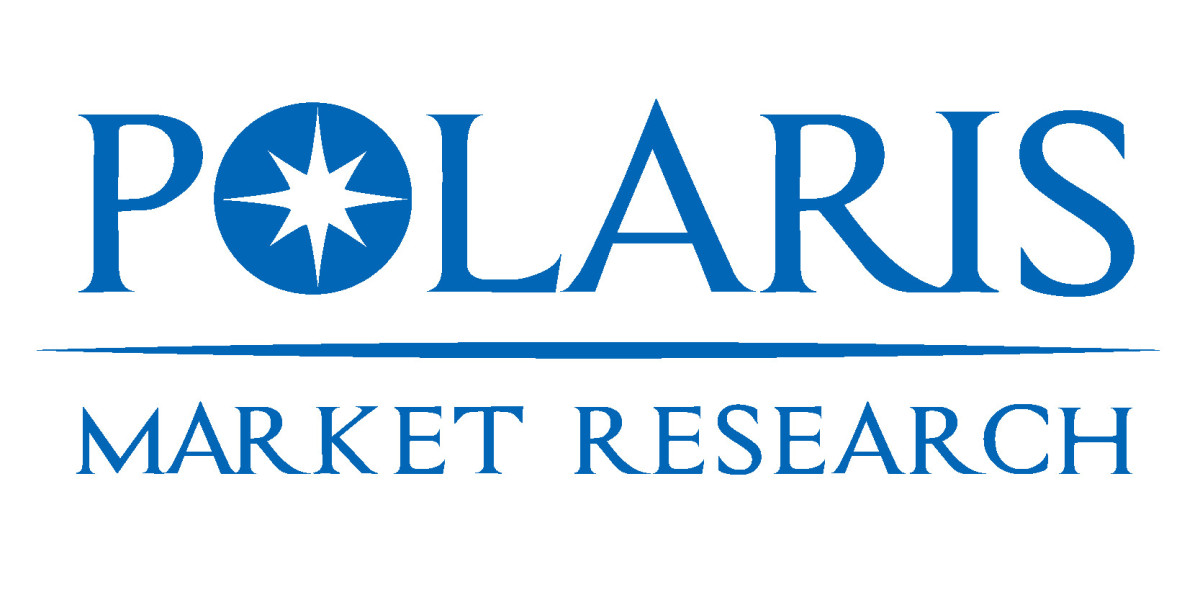1. Executive Summary
The Machado-Joseph Disease (MJD), or Spinocerebellar Ataxia Type 3 (SCA3), treatment market is currently driven by symptomatic management but is on the cusp of significant transformation due to a robust pipeline of disease-modifying therapies (DMTs). MJD is the most common autosomal dominant ataxia, caused by a CAG repeat expansion in the ATXN3 gene.
The global Machado Joseph Disease Treatment Market size was valued at USD 350.41 million in 2024 and is projected to reach USD 508.89 million by 2032, with a CAGR of 4.77% during the forecast period of 2025 to 2032.
While the market for current symptomatic treatments (e.g., L-dopa, Baclofen) is steady, the primary growth opportunity lies in the successful launch of novel gene-targeting and protein-clearing agents.
Market Valuation (2024 Est.): Approximately USD 350.41 Million
Projected Market Value (2032 Est.): Approximately USD 508.89 Million
Compound Annual Growth Rate (CAGR, 2025–2032): 4.77%
The recent issuance of a Complete Response Letter (CRL) by the FDA for Troriluzole for spinocerebellar ataxia highlights the high regulatory risk but also increases the unmet need and market potential for other pipeline candidates.
2. Disease Overview and Unmet Need
Machado-Joseph Disease is a progressive, neurodegenerative disorder characterized by cerebellar ataxia, spasticity, ophthalmoplegia, and peripheral neuropathy. The disease onset typically occurs in middle adulthood (Types II and III) but can be much earlier (Type I).
MJD Type | Age of Onset | Progression Speed | Dominant Symptoms |
|---|---|---|---|
Type I | 10–30 years | Rapid | Severe dystonia, rigidity, hypertonia |
Type II | 20–50 years | Gradual | Spastic gait, truncal ataxia, dysarthria |
Type III | 40–70 years | Slow | Ataxia, peripheral neuropathy, muscle atrophy |
Unmet Need: There are currently no FDA or EMA-approved disease-modifying therapies specifically for MJD. Existing treatments only manage symptoms (e.g., spasticity, movement disorders), failing to halt or reverse the underlying neurodegeneration.
3. Market Drivers and Restraints
Market Drivers
Strong Pipeline: A shift from symptomatic drugs to disease-modifying agents, particularly those targeting the mutant ATXN3 protein (ASOs, gene therapies).
Orphan Drug Designation: Regulatory incentives (tax credits, waived fees, 7 years market exclusivity in the US) drive pharmaceutical investment in rare diseases like MJD.
Diagnostic Improvement: Increased genetic testing and diagnostic awareness lead to earlier and more accurate patient identification.
Rising Healthcare Expenditure: Growing funding, especially in developed markets (US, EU, Japan), for rare disease research and specialized healthcare access.
Market Restraints
Lack of Approved DMTs: The absence of a curative or disease-attenuating treatment currently limits revenue generation to generic symptomatic drugs.
Clinical Trial Complexity: The rarity, slow progression, and heterogeneity of MJD make trial design (endpoints, patient recruitment) challenging.
High Development Cost: Research and development for gene-based therapies are capital-intensive.
Side Effects: Existing symptomatic drugs (e.g., Botulinum Toxin) carry side effects that can limit widespread use and patient adherence.
4. Market Segmentation Analysis
4.1. By Drug Type (Current Market)
This segment is dominated by off-label and generic drugs used for symptom relief:
Muscle Relaxants: Baclofen (for spasticity) and Botulinum Toxin injections (for dystonia and muscle spasms).
Dopaminergic Agents: L-dopa (for Parkinsonism-like symptoms like slowness and stiffness).
Glutamatergic Modulators: Riluzole (approved for ALS but used off-label to improve cerebellar symptoms in ataxia patients).
4.2. By Route of Administration
The market is currently segmented into:
Oral: Dominant segment (L-dopa, Baclofen, Troriluzole, etc.).
Parenteral (Injectable/Infusion): Includes Botulinum Toxin and emerging therapies like intravenous Trehalose (SLS-005), and future Antisense Oligonucleotide (ASO) treatments which require intrathecal injection. This segment is expected to grow rapidly with DMT approvals.
https://www.databridgemarketresearch.com/reports/global-machado-joseph-disease-treatment-market
5. Competitive Landscape and Pipeline Analysis
The MJD market is highly fragmented but focused on a few key therapeutic approaches aimed at the genetic root cause:
Therapy (Company) | Mechanism of Action | Clinical Phase | Status & Notes |
|---|---|---|---|
Troriluzole (Biohaven) | Glutamate Modulator (Prodrug of Riluzole) | Phase 3 Completed | Regulatory Risk: FDA issued a Complete Response Letter (CRL) in late 2025 for Spinocerebellar Ataxia (SCA), indicating safety and/or efficacy concerns need resolution before approval. |
SLS-005 (Trehalose) (Seelos) | Autophagy Induction / Protein Clearance | Phase 2b/3 | Designed to clear toxic ATXN3 protein aggregates. Enrollment ongoing, expected completion in 2024/2025. Holds promise as a potential first-in-class DMT. |
VO659 (Vico Therapeutics) | Antisense Oligonucleotide (ASO) | Phase 1/2a | Targets the expanded CAG repeats in the ATXN3 mRNA to reduce the production of the toxic ataxin-3 protein. Disease-modifying approach. |
Stemchymal (Steminent) | Mesenchymal Stem Cells (MSC) | Phase 2 Completed | Aims to improve cell communication, reduce inflammation, and repair tissue. Results from the randomized, double-blind trial are pending. |
Lithium Carbonate | Autophagy/Chaperone Modulation | Phase 2 Completed | Repurposing candidate. Showed benefit on secondary outcomes related to ataxic features, suggesting potential for a Phase 3 trial. |
6. Key Market Players
The major companies involved in the MJD treatment market can be grouped into symptomatic drug providers and pipeline innovators:
Category | Key Companies | Focus Areas |
|---|---|---|
Pipeline Innovators | Biohaven Pharmaceuticals, Seelos Therapeutics Inc., Vico Therapeutics, Steminent Biotherapeutics (Reprocell), Cure Rare Disease, Biogen (though BIIB132 trial was stopped), BioMarin. | Gene-targeting therapies (ASOs, siRNA), Cell therapy, Protein clearance. |
Symptomatic Providers | Teva Pharmaceutical Industries Ltd., Ipsen Pharma, Merz Pharma, Ajinomoto Co. Inc., Lannett, Evolus, Inc. | Generic symptomatic drugs and specialty injectables (Botulinum Toxin). |
Browse More Reports:
Global Radiofrequency (RF) Micro needling Market
Global Radio Immunoassay (RIA) Reagents and Devices Market
Global Robotic Endoscopy Devices Market
Global GAN Epitaxial Wafers Market
Global Intranasal Antidepressant Market
Global Polybutadiene Market
Global Vestibular Neuronitis Treatment Market
Global Vitamin Deficiency Treatment Market
Global Automotive Bicycle Chain Market
Global Business Process Management (BPM) in Real Estate Market
Global Orthopaedic Imaging Equipment Market
Global Water Based Heliports Market
Global Medical Kits Market
Global Needle Destroyer Market
Global Makeup Tools Market
7. Market Outlook and Future Trends
The Machado-Joseph Disease treatment market is shifting from palliative care to disease modification, creating lucrative opportunities for early entrants with novel mechanisms of action.
Gene Therapy Dominance: Antisense Oligonucleotides (ASOs) and potentially future AAV-based gene therapies are expected to be the most impactful segment post-2027, as they target the root cause of the toxic protein accumulation.
Biomarker Validation: The market relies heavily on the validation of objective biomarkers (such as imaging, oxidative stress markers, and protein levels) to expedite clinical trials and regulatory approval, as traditional clinical scales (like SARA) are often insufficient for early-stage disease detection.
Global Growth: While North America and Europe currently dominate due to advanced healthcare infrastructure and high diagnosis rates, growth in Asia-Pacific (particularly Japan and China, where MJD prevalence is notable) is anticipated as clinical trial centers expand and access to specialty drugs increases.
Contact Us:
Data Bridge Market Research
US: +1 614 591 3140
UK: +44 845 154 9652
APAC : +653 1251 975
Email:- corporatesales@databridgemarketresearch.com








